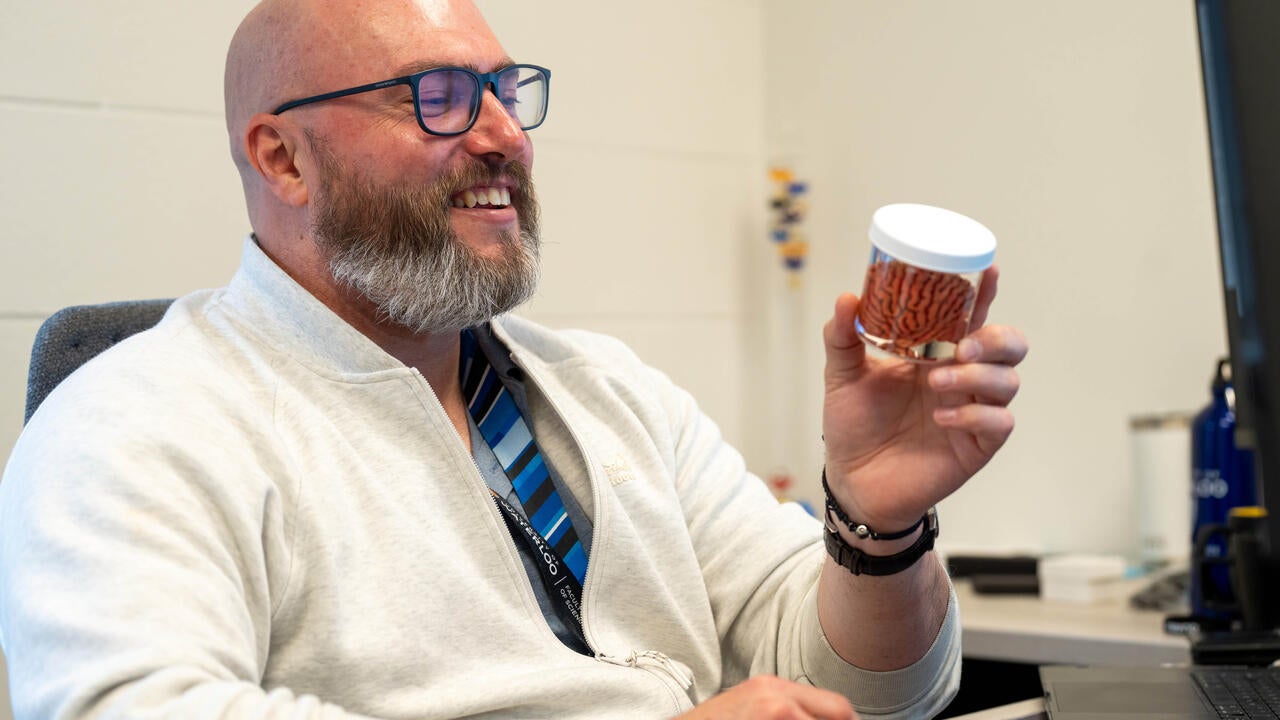Science
Researchers Explore Quantum Mechanics to Decode Brain Function

Understanding the brain’s complexities has long been a daunting challenge for scientists. Recent developments in the field of quantum neurobiology, led by researchers like Dr. Travis Craddock, aim to bridge the gap between physics and biology to uncover how neural activity shapes cognition. Craddock, a Science professor and the Canadian Research Chair in Quantum Neurobiology at the University of Waterloo, is exploring the physical and molecular processes that govern brain function.
Dr. Craddock emphasizes the fascinating interplay between physics and biology. He notes, “A lot of physicists, like me, find biology incredibly fascinating. From a physics standpoint, it’s remarkable how these systems work and how they follow the laws of physics to give rise to a living system.” His journey into neurobiology began with a passion for understanding the universe through physics, which eventually expanded to encompass chemistry, biology, and computer science. This interdisciplinary approach is crucial, as Craddock explains, “Neurobiology brings it all together because you need to know your fundamental physics, chemistry, and biology of neuroscience in addition to the theory and modeling to put it all together.”
The Quantum Neurobiology Lab seeks to unravel the fundamental science behind brain function, particularly regarding neuroinflammation and neuroinflammatory diseases. Insights gained from this research could pave the way for innovative treatments for conditions such as Alzheimer’s and Parkinson’s disease, as well as technologies aimed at enhancing memory and understanding the intricate details of brain activity. “By gaining insight into the basic science behind how the brain and its neurons work, it provides us with an understanding of what’s unique about living matter compared to non-living matter,” Craddock states.
One of the key advantages of employing quantum mechanics in this research is the complementary nature of physics and biology. Craddock highlights that “there are unique quantum properties that biology seems to be using to give living matter an evolutionary advantage.” These properties may include principles like superposition, tunneling, and entanglement, which could have implications for brain function, memory, and even consciousness.
Dr. Craddock chose to establish his research at the University of Waterloo due to its strong reputation as an innovator in the biomedical field. He believes that the university’s robust foundation in physics, biology, quantum mechanics, and engineering positions it well for advancements in these areas. “Waterloo is primed to expand within the biomedical space because of its strong foundation in physics, biology, quantum and engineering. And I am excited to be a part of that,” he explains.
As research continues, Craddock and his team are committed to investigating the potential for unique quantum properties in the biology of the brain. Their work not only seeks to advance scientific knowledge but also aims to answer profound questions about human existence. “The more you answer questions about the brain, you’re basically answering, what does it mean to be a human being,” he reflects.
The intersection of quantum mechanics and neurobiology represents a promising frontier in understanding the brain’s mysteries. As researchers like Dr. Craddock delve deeper into this complex relationship, the potential for groundbreaking discoveries in neuroscience and the treatment of neurological diseases becomes increasingly tangible.
-

 Science3 months ago
Science3 months agoToyoake City Proposes Daily Two-Hour Smartphone Use Limit
-

 Top Stories3 months ago
Top Stories3 months agoPedestrian Fatally Injured in Esquimalt Collision on August 14
-

 Health3 months ago
Health3 months agoB.C. Review Reveals Urgent Need for Rare-Disease Drug Reforms
-

 Technology3 months ago
Technology3 months agoDark Adventure Game “Bye Sweet Carole” Set for October Release
-

 World3 months ago
World3 months agoJimmy Lai’s Defense Challenges Charges Under National Security Law
-

 Lifestyle3 months ago
Lifestyle3 months agoVictoria’s Pop-Up Shop Shines Light on B.C.’s Wolf Cull
-

 Technology3 months ago
Technology3 months agoKonami Revives Iconic Metal Gear Solid Delta Ahead of Release
-

 Technology3 months ago
Technology3 months agoApple Expands Self-Service Repair Program to Canada
-

 Technology3 months ago
Technology3 months agoSnapmaker U1 Color 3D Printer Redefines Speed and Sustainability
-

 Technology3 months ago
Technology3 months agoAION Folding Knife: Redefining EDC Design with Premium Materials
-

 Business3 months ago
Business3 months agoGordon Murray Automotive Unveils S1 LM and Le Mans GTR at Monterey
-

 Technology3 months ago
Technology3 months agoSolve Today’s Wordle Challenge: Hints and Answer for August 19









